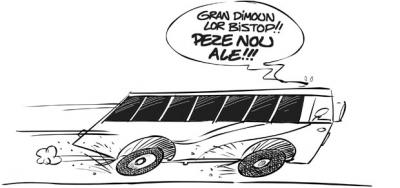The World Elder Abuse Awareness Day was launched in June 2006 by the International Network for the Prevention of Elder Abuse and the World Health Organisation as a support to the UN International Plan of Action acknowledging the significance of elder abuse as a public health and human rights issue.
Since its inception in 2012 DIS-MOI has, through its Commission for the Rights of Older People, been endeavouring to raise awareness about elderly abuse, neglect and exploitation in response to a wake-up call from specialized agencies and from the reality in changing living style and because we cannot remain indifferent to a universal phenomenon which is ‘ageing’.
2017 THEME
This year Member States of the UN are called to ‘’Understand and End Financial Exploitation of Older People’’, this being a Human Rights Issue.
All countries, from the developed to the developing regions, are expected to see a substantial growth in their population. In 2030 we are here expecting 22.8% of elderly persons out of around 1.4m and subsequently 30% in 2050. When we speak of elderly abuse, we can guess the correlation between the growing number of older people and increasing cases of abuse.
We have come across, regularly (most unfortunately), the media reporting on cases of victimization of old people. There is no definite statistics on such cases as, one would naturally guess, many are reported neither by victims because of inability of movement or under the threat of more abuse, nor by witnesses out of shame or themselves being dependent on the abuser/s. This is true to family and institutional contexts.
Financial exploitation is characterized by a host of departures from ethics, respect and sham of human rights: theft, forgery, ponzi, misuse of property, incapacity to have legal aid, and denial of access to funds. Lately we read of close ones grabbing the old age pension of their parents, ejection from homes on incapacity to settle rents, old age pension to buy food for the newborn grand child out of adolescent pregnancy. This backdrop is heavily loaded with social isolation, financial dependence on the perpetrator of the abuse, poverty, ageism, illness associated to old age, lack of support networks. We have also come across media reporting of people throwing their money down the drains of witchcraft.
GOVERNMENT COMMITMENT
This 15th of June theme, though calling our attention to financial exploitation of older people, is like a reminder to the recurrent forms of abuse. True it is, we have an Elderly Watch which is part of a support network as an emanation of the Ministry of Social Security whose scope has to be defined regularly so as to drive its existence into old people’s mind, and so that institutions concerned are aware they are under scrutiny.
At a validation workshop in January 2016 ‘’the Draft of a National Strategy Paper and Action Plan on Ageing 2016-2020” aiming at translating Government’s strategic vision to provide more protection and security to the elderly through the adoption of a multidisciplinary approach” was being discussed under the aegis of the Ministry of Social Security, National Solidarity and Reform Institutions.( Ref. G.I.S). And in June of the same year the Minister is quoted as saying ‘’Mauritius has put up appropriate structures for the elderly but there is need to bring amendments to the Protection of the Elderly Persons Act 2005. A strategy paper for the coming five years for an elderly growing population is also in the pipeline’’. (Ref.G.I.S)
Old people are in good hands!
OTHER FORMS OF ABUSE OF ELDERS AND CABINET DECISION
Abuse take many forms: violence in the couple, violence from strangers (neighbours starting from foul language to a kind of lapidating), psychological and emotional abuse (could be bullying of a fellow colleague in a team or harassment, male to male or male to female or vice versa), physical, sexual and negligence.
It’s comforting to remind that at its meeting of 21 April 2017 ‘’Cabinet has agreed to Mauritius acceding to the Protocol to the African Charter on Human and People’s Rights and the Rights of Women in Africa.’’ ‘’The Protocol covers, inter alia, the elimination of all forms of discrimination against women, protection of women from violence, exploitation of women, protection against harmful practices, access to judicial and legal services including legal aid, equal access to education, training and employment, the rights of women to health, food security and adequate housing, rights of widows, and special protection of elderly women and women with disabilities.
We would tend to believe that this Protocol will be yet another instrument to forge further in the interest of women which in parallel impact positively on men and on society in general.
AND NOW
Next year when we mark World Elder Abuse Awareness Day it is our sincere wish that we write on the brighter side of the life of older people. It stands to reason that this issue should be taken up for discussion at home, school, in old aged people’s circles, in higher institutions of learning. After some time we should move from rhetoric to a real culture of elderly respect.
GOVERNMENT BUDGET 2017-2018
The decision of Government to devote Rs50m in this budget to set up two homes that will accommodate low income elderly residents who are living alone is most welcoming.
15 JUNE: World Elder Abuse Awareness Day
- Publicité -
EN CONTINU ↻


